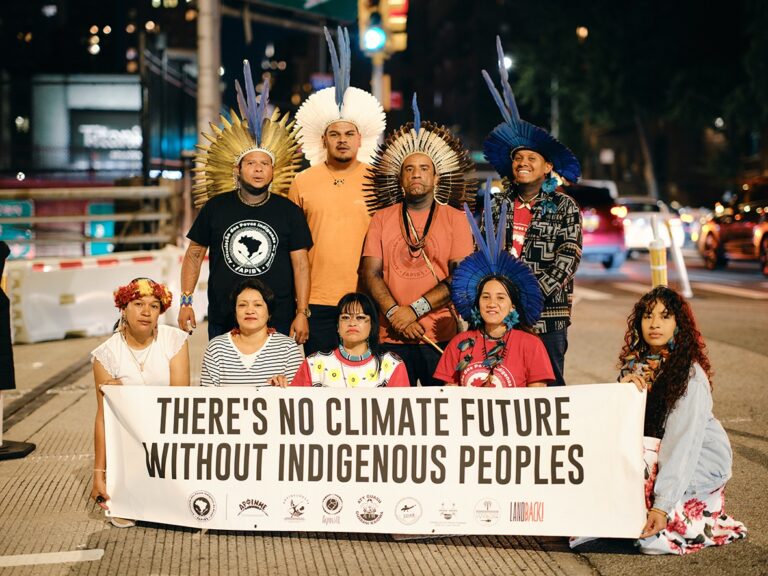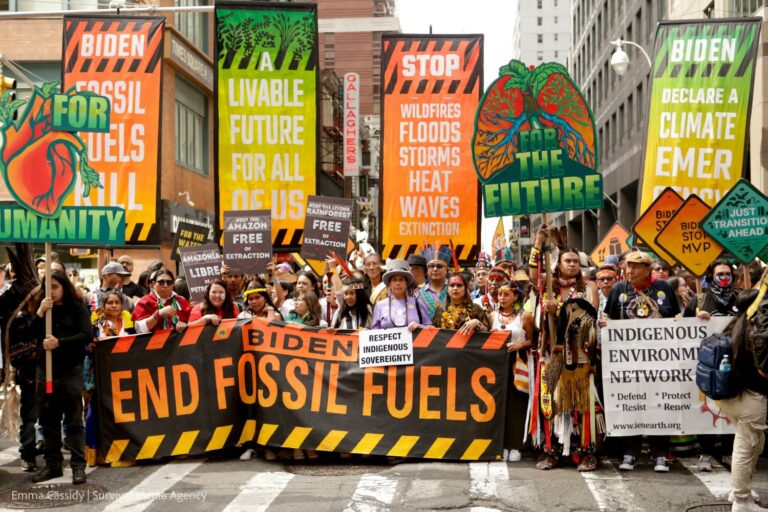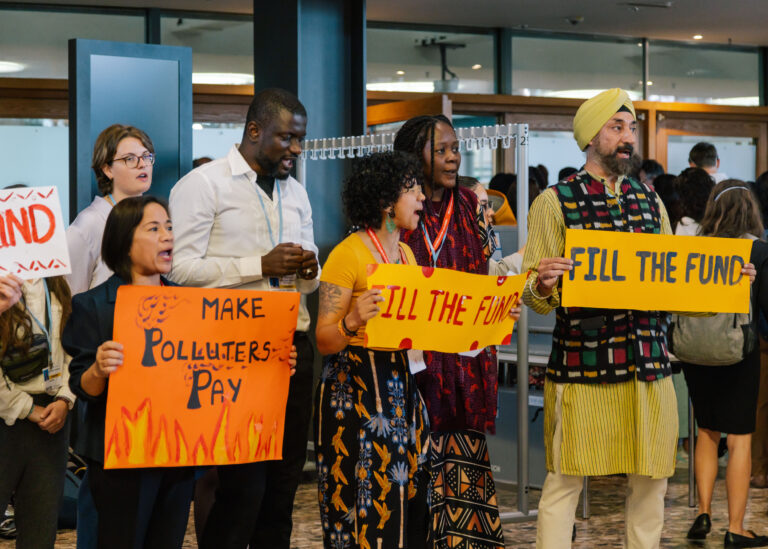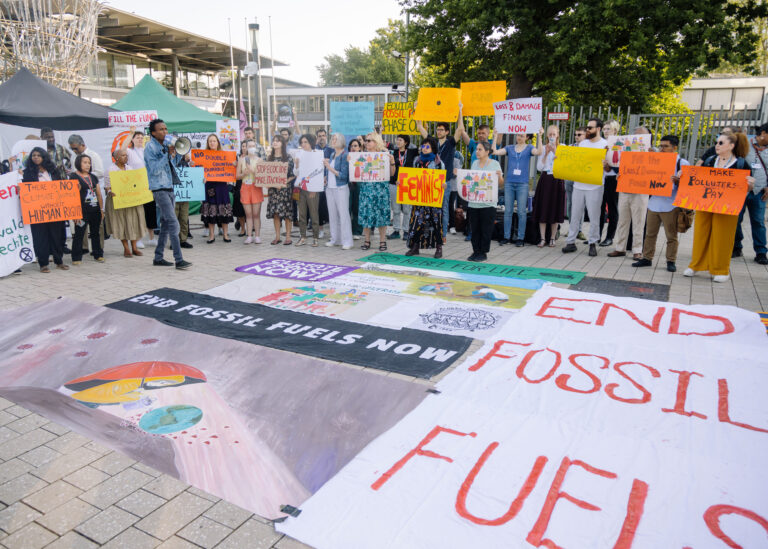The world reached 1.43°C of warming this November compared to pre-industrial temperatures over the average of the last ten months since January 2023. This year will “certainly” be the warmest on record, since probably 125,000 years. Meanwhile, climate impacts are exacerbating vulnerabilities, inequities and robbing people of a life with dignity and devastating ecosystems. There can be no new fossil fuel projects if we are to have a liveable future on this planet. We need a just and equitable phase out of fossil fuels alongside delivering finance for a Just Transition to sustainable renewables, adaptation, and to address Loss and Damage. We are demanding real solutions; these dangerous distractions will only delay efforts to limit global temperature.
“We have a clear Litmus Test for COP28, the delivery of an Energy Package: 1) Just and equitable phaseout of fossil fuels, 2) rapid phase-in and scaling up of Renewable Energy, 3) finance must be provided for developing countries to carry out this transition. All three parts are essential.”
– Tasneem Essop, CAN Executive Director
Get the latest updates on the COP28 climate negotiations by following us on Twitter/X @CANIntl.
COP28 Towards Systems Transformation For a Just and Equitable Future

Energy Package – There can be no new fossil fuel projects for a liveable future. Therefore for COP28 to succeed, it must deliver a plan to phase out fossil fuels in a fair yet fast manner that takes into account development and social needs for a Just Transition. We need a plan to scale up 100% safe and sustainable renewables to displace existing fossil fuel projects. Renewable energy projects must not replicate the harms of existing extractive models of production.
Read CAN’s Full Energy Package here: ‘Climate Action Network — The Transition to 100% Renewable Energy Must be Just, Equitable and Rapid‘.
Just Transition – The impacts of climate change are already experienced by the most vulnerable countries, it is therefore that the transition to a sustainable future is rapid, however this must take place through centring rights, inclusion and international cooperation. Upholding and protecting human rights, upholding the rights of Indigenous Peoples and local communities is paramount for a just transition.
Read CAN’s full position ‘CAN Guidance on a Just Transition‘

Adaptation and Loss and Damage – Safeguarding people and their rights and addressing systemic failures through adaptation and loss and damage is not only essential but also an opportunity to create a more equitable and climate-resilient world for people and nature. The decisions made at this critical juncture will shape the path forward in the response to climate breakdown. In this context, COP28 decisions on Global Goal on adaptation, adaptation finance and Loss and Damage fund should resonate with the urgency of the climate crisis and its far-reaching consequences.
Climate Finance – Climate finance is critical to the different pieces of climate action — mitigation, adaptation and loss and damage. Today the global financial system is failing the people and the planet. Governments, financial institutions, intergovernmental organisations and systems, including the state of climate finance under the UNFCCC, continue to accelerate the climate and biodiversity crises, exacerbate poverty, inequalities and injustices and are unfit to fund the transformations urgently needed. And so, this COP should pave way for the transformation of the finance system.
PRESS RELEASES

Engaging in our collective action
There are many ways you can engage in COP28 as part of the civil society whether you are in Dubai or not. CAN uses a variety of political advocacy and communication tools and campaigns, established over the last three decades, to influence world leaders, negotiators and other officials.
Find out more on how you, too, can take part in fighting for the best outcomes from COP28:

Ending Fossil Fuels and Delivering Justice
CAN engages through the Working Groups to plan and implement its strategy on a variety of issues pertaining to the COP negotiations such as on: finance, ambition, adaptation, Loss & Damage, carbon markets, ecosystems and many others.
Check out the CAN Annual Policy Document which outlines our key policy asks.

Solidarity for Climate Justice
By focusing on the needs of communities most impacted by the climate crisis, CAN works with its members, partners, coalitions and other constituencies of the UNFCCC process to ensure the best possible outcomes COP28.
As accredited civil society observers to the negotiations, members of the network identify, monitor and shape the course of climate negotiations with a view to ensure that governments are accountable to deliver on the most ambitious and far-reaching commitments that addresses the climate crisis for the people and most vulnerable communities.
Know more about our key allies and how you can be in solidarity with them:

